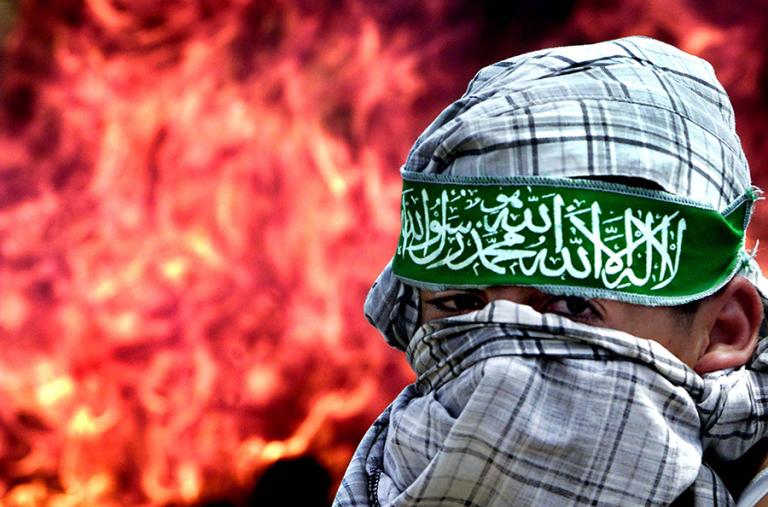غزة وسيناريو الخروج من بيروت
عبد الرحمن الراشد/الشرق الأوسط/15 تشرين الأول/2023
Gaza and the Beirut exit scenario
Abdulrahman Al-Rashed/Asharq Al-Awsat/October 15/2023
Hamas is not an exceptional organization in the history of the Palestinian-Israeli conflict. If boasting about operations were the case, other Palestinian organizations have preceded it with operations that were no less significant. The difference was that the means of photography in those times were limited and the media outlets were closed.
The “Fatah Revolutionary Council” group, known by the name of its leader “Abu Nidal,” killed about 2,000 people in 20 countries, hijacked aircraft and ships, and assassinated politicians. “The Popular Front for the Liberation of Palestine,” another leftist group, whose leader was George Habash, carried out massive operations, including kidnapping oil ministers at an OPEC meeting in Vienna and taking them on a plane that ended up in Algeria. In another operation, it blew up three airliners at once at Amman airport.
“Abu Nidal” and the PFLP disappeared in Syria and Iraq, while the Fatah movement has persisted, and has established itself on Palestinian land. Its movement and armed activity are part of a national political project.
Hamas may not survive the major attacks of Oct. 7. I imagine that the movement’s leadership was aware of this when it adopted the attack project, and that is because the conflict is usually governed by the balance of losses. In the past, Hamas did not lack volunteers trained for combat; yet the individuals involved in the operation could be counted on the fingers of two hands. Balance was part of the calculations of the conflict that both parties had to bear and live with. Similarly, Israel, despite numerous minor skirmishes, rarely attacks Hezbollah, perhaps only once every decade, when Israel sees that its human and military capabilities have grown to what it considers a threat.
Armed militias do not settle the stages of conflict, and no matter how much their echoes reverberate in the world, they are quickly forgotten. The Palestinian Authority, when it was the “Palestine Liberation Organization,” led by “Fatah,” lived in exile and managed Palestinian affairs politically, militarily and socially. After being exiled from Beirut, it returned through the Madrid Conference, then was transformed into a legitimate authority through the Oslo Accords, and on its promised land, the West Bank. Today, it may be the hope for the Palestinian who wants both to improve his or her difficult daily living situation, and to establish an independent Palestinian state.
The Israelis still refuse, claiming that the PA is incapable of assuming its responsibilities, and that its leadership — i.e. Mahmoud Abbas and his colleagues — has grown old, and is not as competent as the organization’s previous leadership.
On the other hand, we can say that Israel is now devoid of historical leaders such as Yitzhak Rabin. Benjamin Netanyahu, the current prime minister, is viewed by many Israelis as being corrupt and opportunistic, and that he has not been a partner in peace in any of the previous efforts. Indeed, in order to save himself from prison, he is engaged in a struggle with his rivals and colleagues in the party.
Hamas will not liberate Palestine with its gliders, and Netanyahu will not extinguish the Palestinians’ determination to establish their state.
The region is currently facing an extremely dangerous crisis that could grow and expand. In addition to Gaza, the destruction may extend to the West Bank; a war might break out in Lebanon, and the fires might spread further geographically, and for a longer indefinite period.
I see a resemblance between this war and the Beirut war of 1982, when Ariel Sharon invaded after an attempt to assassinate the Israeli ambassador in London. The irony is that the perpetrator was from the “Abu Nidal” group, and Damascus was accused of involvement. However, it was the PLO that paid the price; the Israelis forced it to leave for Tunisia, Sudan and Yemen. In practice, “Fatah” as an armed struggle movement came to an end.
Israel’s operations and statements indicate that it intends to get rid of the Hamas organization and most of its militants, including expelling them from the Gaza Strip through Egypt.
In the north, Hezbollah is unlikely to get involved in the war because that would mean the Israeli army would return to southern Lebanon. It is aware that destroying its capabilities would weaken it in Syria, which has become more important to it militarily and politically, and that it might lose its complete dominance over Lebanon itself.
We return to the question: Why did Hamas carry out this massive attack, or as some call it, the “Israeli 9/11”? Is it a mass suicide or a way to resolve the power balance dilemma? After its attacks, Al-Qaeda members shifted from an organization ruling the state of Afghanistan to living in caves, and ended up with Osama bin Laden hiding in Pakistan, and his children in Iran. But Al-Qaeda differs from Hamas in that its project was the Caliphate, a historical fantasy that has no place in the modern era, while the Palestinian project is real and holds great hope.
Nevertheless, we now face an opportunity, and as Winston Churchill said at the UN following the devastation of the Second World War: “Never let a good crisis go to waste.”
Hamas has chosen this path, and Israel has decided to change the reality in Gaza by force and put an end to Hamas. Neither party will settle the conflict the way it wants. Hamas will not liberate Palestine with its gliders, and Netanyahu will not extinguish the Palestinians’ determination to establish their state.
• Abdulrahman Al-Rashed is a Saudi journalist and intellectual. He is the former general manager of Al-Arabiya news channel and former editor-in-chief of Asharq Al-Awsat.‘
غزة وسيناريو الخروج من بيروت
عبد الرحمن الراشد/الشرق الأوسط/15 تشرين الأول/2023
حركة «حماس» ليست حالةً استثنائيةً في تاريخ الصراع الفلسطيني الإسرائيلي. ولو كانَ التباهي بالعمليات فإنَّ تنظيماتٍ فلسطينيةً أخرى قد سبقتها وأذهلت زمنَها بعمليات لم تقلّ ضخامةً، الفارق أنَّ وسائلَ التصوير كانت محدودةً، ونوافذَ الإعلام مغلقة. «الفتح الثوري»، المعروفة باسم قائدها «أبو نضال»، قتلت نحو ألفي شخص في عشرين بلداً، خطفت طائراتٍ وسفناً، واغتالت سياسيين. «الجبهة الشعبية»، جماعة يسارية أخرى، زعيمُها جورج حبش، قامت بعملياتٍ ضخمة، أشهرها خطفُ وزراء النفط في اجتماع «أوبك» في فيينا، وطافت بهم على متن طائرة انتهت في الجزائر. وفي عملية أخرى فجَّرت ثلاثَ طائراتٍ دفعةً واحدة في مطار عمان.
أبو نضال والشعبية اندثرا في سوريا والعراق، أمَّا حركة «فتح» فمستمرة وصارت على أرضها الفلسطينية. كان نشاطُها الحركي والمسلّح جزءاً من مشروعٍ وطني سياسي. أمَّا أبو نضال فقد انتهى بندقية عند «البعث» العراقي، وحبش تابعاً لـ«البعث» السوري.
«حماس» قد لا تنجو بعد هجماتِ السابع من أكتوبر (تشرين الأول) الكبيرة. وأتصوَّر أنَّ قيادة الحركة كانت تدرك ذلك، عندما اعتمدت مشروعَ الهجوم؛ لأنَّ الصراعَ عادةً محكومٌ بميزان الخسائر. ولم يكن ينقصُ «حماس» في الماضي المتطوعون المتدربون على القتال، مع هذا كانت العمليةُ لا يتجاوز عددُ منفذيها أصابعَ اليدين فقط. كان التوازن جزءاً من حسابات الصراع الذي يتحمَّله ويتعايش معه الطرفان. كذلك، إسرائيل، رغم كثرة الاشتباكات الصغيرة، لا تهاجم «حزبَ الله» تقريباً إلا بعد كل عقد من الزمن، عندما ترى أنَّ قدراتِه البشريةَ والتسليحية قد نَمَت بما تعتبره خطراً عليها.
لا تحسم محطات الصراع الميليشيات المسلّحة، ومهما تردَّد صداها في العالم سرعان ما يطويها النسيان. السلطة الفلسطينية، عندما كانت «منظمة التحرير»، بقيادة «فتح»، عاشت في المنافي وأدارت الشأنَ الفلسطيني سياسياً وعسكرياً واجتماعياً. بعد نفيها من بيروت، عادت عبر مؤتمر مدريد، ثم تحوَّلت إلى سلطةٍ شرعيةٍ عبر «اتفاق أوسلو»، وعلى ترابِها الموعود، الضفة الغربية. اليوم قد تكون الأمل عند الإنسان الفلسطيني الذي يريد الاثنين؛ إنقاذ وضعِه المعيشي اليومي الصعب، ودولة فلسطينية مستقلة.
الإسرائيليون يرفضون بذريعة أنَّ السلطة عاجزة عن أن تتحمَّلَ مسؤوليتَها، وأنَّ قيادتَها، «أبو مازن» ورفاقَه، قد شاخوا، وليسوا بكفاءة كبارِ قياديي المنظمة الراحلين. في المقابل، يمكننا القولُ، إسرائيل خَلَت من أمثال القادة التاريخيين؛ رابين. رئيس الوزراء الحالي، نتنياهو، ينظر إليه كثير من الإسرائيليين كشخصيةٍ فاسدة وانتهازية، ولم يكن شريكاً في السلام في كل المساعي السابقة. وهو من أجلِ إنقاذ نفسِه من السجن يعيش في صراعٍ مع منافسيه ورفاقه في الحزب.
المنطقة أمام أزمة في غايةِ الخطورة، قد تكبر وتتَّسع. إضافةً إلى غزة، قد يطول الدمار الضفة، وتنشب حربٌ في لبنان، وربَّما تمتدّ النيران إلى أبعد من ذلك جغرافياً، ولفترة طويلة.
أرى شبهاً بين هذه الحرب وحرب بيروت عام 1982 عندما غزاها شارون، بعد محاولة اغتيال السفير الإسرائيلي في لندن، المفارقة أنَّ الفاعلَ كان من جماعة «أبونضال»، واتّهمت بها دمشق. لكن الذي دفع الثمنَ كانت «منظمة التحرير»، أجبرها الإسرائيليون على الرحيل إلى تونس والسودان واليمن. عملياً انتهت «فتح» كحركة نضال مسلّح.
العمليات والتصريحات الإسرائيلية تقول إنَّها تنوي التخلّص من التنظيم ومعظم مسلّحي «حماس»، بما في ذلك إخراجهم من القطاع عبر مصر.
شمالاً، من المستبعد أن يتورَّط «حزب الله» في الحرب؛ لأنَّ ذلك سيعني عودة الجيش الإسرائيلي إلى جنوب لبنان. يعي أن تدميرَ قدراتِه سيُضعفه في سوريا، التي أصبحت أكثرَ أهمية له عسكرياً وسياسياً، وقد يفقد هيمنتَه الكاملة على لبنان نفسه.
نعود ونتساءل: لماذا نفّذت «حماس» هذا الهجومَ الضخم، أو كما يسميه البعض «11 سبتمبر الإسرائيلية»؟ هل هو عملية انتحارٍ جماعية أم حسمٌ لمأزق توازن القوة؟ «القاعدة» بعد هجماتِها تحوَّل أفرادها من تنظيم يحكم دولةَ أفغانستان إلى العيش في الكهوف، وانتهى بابن لادن مختبئاً في باكستان، وأولاده في إيران. لكن «القاعدة» تختلف عن «حماس»، إن مشروعها كان دولة الخلافة، فانتازيا تاريخية، لا محلّ لها في العصر الحديث، في حين أنَّ المشروع الفلسطيني حقيقي وله أملٌ كبير.
مع هذا، نحن أمام فرصةٍ سانحة، كما قال تشرشل في «الأمم المتحدة»، بعد دمار الحرب العالمية الثانية: «لا تدَعوا الأزمات تذهب سُدى».
«حماس» اختارت هذا الطريق. وإسرائيل قرَّرت تغييرَ واقع غزة بالقوة وإنهاء «حماس». وكلا الطرفين لن يحسم الصراع، لن تحرر «حماس» فلسطين بطائراتها الشراعية، ولن يقضي نتنياهو على عزيمة الفلسطينيين في إقامة دولتهم.






















